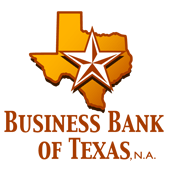Registering a Trademark & Likelihood of Confusion: Trademark Application Rejection
By James Blake onTrademark applications and service mark applications are often rejected due to a likelihood of confusion with another registered mark. If you are registering a trademark or filing a service mark application, a Texas intellectual property lawyer can assist your trademark registration to limit the likelihood of trademark application rejection and trademark infringement litigation. Often, the question of likelihood of confusion rests on a sliding scale of criteria and complex set of rules for evaluating trademark applications that will require the knowledge and advice of an experienced intellectual property attorney.
General Principles for Likelihood of Confusion
The traditional test for likelihood of confusion between marks is:
1) Are the marks similar in appearance, sound, meaning, and commercial impression?
2) Are the marks used for similar goods or services?
The two considerations influence each other. For example, if there isn’t much similarity in appearance, sound, meaning and commercial impression, then the similarity in goods or services will carry less weight, and vice-versa.
Dominant Features: Likelihood of Confusion of Trademark
Trademarks and service marks are supposed to be compared for a likelihood of confusion as a whole. Yet, trademark attorneys in the U.S. trademark office often invoke the rule that one part of a trademark or service mark may be “dominant.” The dominant feature of a trademark or service mark and may be given greater weight in the comparison. An experienced Texas intellectual property lawyer can advise you regarding the dominant aspect of your trademark and suggest changes for registering a trademark. Generic and descriptive parts are generally not dominant. Words are often found to dominant in trademarks or service marks that include words and designs. In general, pronunciation of words does not carry weight in an analysis for likelihood of confusion.
Likelihood of Confusion & Similarity of Goods or Services
If you’re registering a trademark or filing a service mark application that is similar to another trademark in the same category of goods or services, you may face a challenging trademark application rejection for likelihood of confusion. This is true even if the other company doesn’t actually compete with your specific sub-type of goods or services, because trademark attorneys in the U.S. Trademark office generally compare goods or services based on information in the application – not extrinsic evidence. Thus an argument against likelihood of confusion will often fail by trying to distinguish yourself as a sub-set of the larger category, and you may be setting yourself up for trademark infringement litigation.
Our Austin business law firm assists clients with registering a trademark, trademark infringement litigation, and other intellectual property matters. Contact us today to speak with a Texas intellectual property lawyer about registering a trademark.
Contact a Texas Intellectual Property Lawyer, Free Call!
512-651-3930
.
Tags: Austin Business Attorney, Austin Business Lawyer, Austin Intellectual Property Lawyer, Filing a Trademark Application, Intellectual Property, Registering a Trademark, Texas Intellectual Property Lawyer, Trademark







